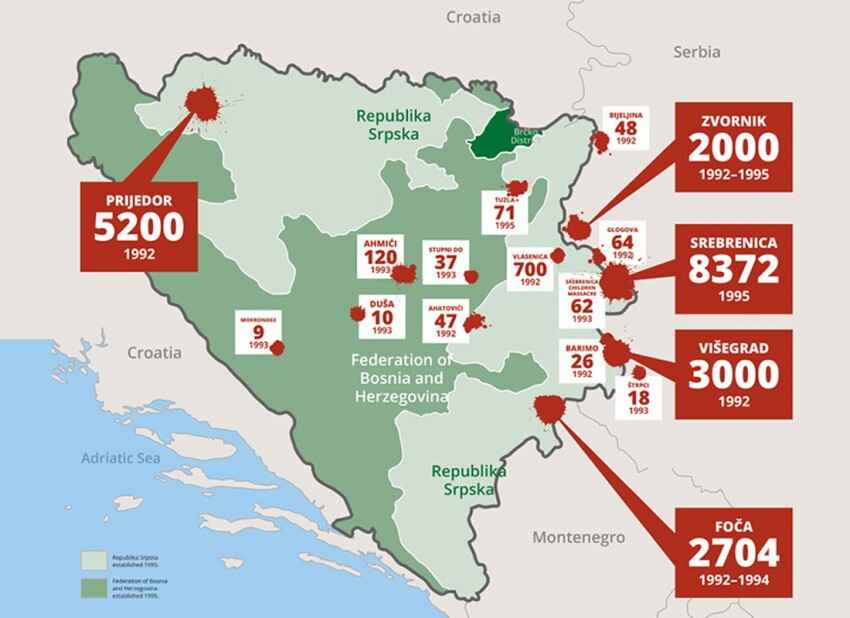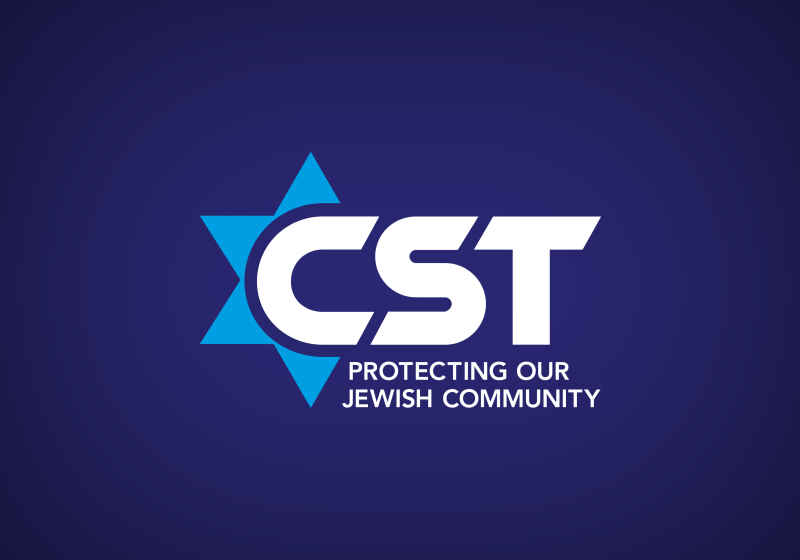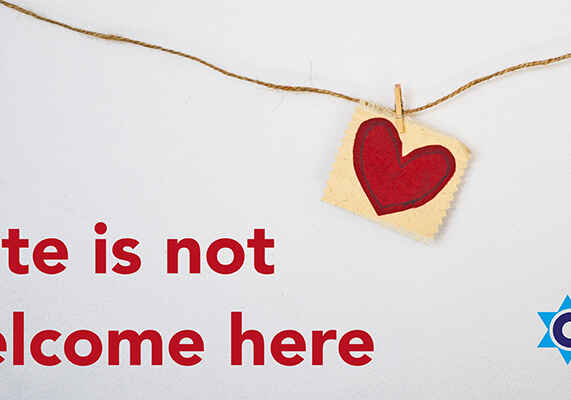CST Blog
Srebrenica Memorial Day 2018
11 July 2018
This year, CST is recognising the 23rd anniversary of the genocide in Srebrenica, on 11 July, when thousands of men and boys were systematically murdered, simply because they were Muslim. The Srebrenica massacre was part of a larger series of ethnic conflicts in the Balkans which resulted in the deaths of almost 150,000 people and the displacement of approximately 4 million people. As an organisation that works to counter antisemitism and protect our Jewish community, it is vital to commemorate the Srebrenica massacre and to take a stand against hatred and discrimination that targets groups based on their religion, ethnicity, gender, sexuality or any type of difference.
At the International Criminal Tribunal for the Former Yugoslavia, 90 individuals were sentenced for their actions in the former Yugoslavia, with several officers found guilty of genocide and other offences related to their actions in Srebrenica in 1995. Dr Marko Attila Hoare stated that the massacre “did not come out of the blue; it was the crowning atrocity of a genocidal killing process that had begun over three years earlier, in the spring of 1992, and unfolded before the cameras of the global media.”

In the state of Bosnia, between 1992 and 1995, almost 22,000 people perished. The war and the massacre in Srebrenica have been described as the worst atrocity in Europe since the Holocaust. In Bosnia, concentration camps were set up, and the majority of prisoners at the largest camp, Omarska, were Muslim. The conditions at the camp were atrocious with the prisoners fed one meal a day, frequent beatings and murder.
On 11 July 1995, the Serbian army entered and claimed the town of Srebrenica, which had a high proportion of Muslims, for Bosnian Serbs. After women and children fled the town, over 10,000 men from the town attempted to leave for the town of Tuzla in a Muslim region of the collapsing state but were shelled by the Bosnian military. Many of the men escaped and went into hiding in the surrounding forests, in an attempt to reach Tuzla, but during the next few days, many of the men were coaxed out of hiding by the Serbian military posing as peacekeepers and executed. The men who fled, known as The Column, continued to make their way to Tuzla, with less than 3,000 surviving.
This year, the theme of Srebrenica Memorial Day is “Acts of Courage”. This serves as a reminder that hope and the common bonds of humanity can triumph in the darkest of times. We are all invited to draw strength and inspiration from those who, during the genocide and ethnic cleansing, were bold enough to resist an ideology of division, protect their neighbours, and speak out for truth and justice. The baton of courage has now been passed on and it is up to us to learn the lessons from Srebrenica.
Zoran Mandlbaum, who passed away in 2015, was born in Yugoslavia and his family were Jewish. He epitomises this year’s theme of “Act with Courage”. His mother was from Sarajevo, now part of Bosnia-Herzegovina and her whole family was murdered in the Holocaust. Mandlbaum saw the Yugoslav army who were stationed in his town “wearing fascist symbols with pictures of Pavelić and Artuković … who committed terrible atrocities during World War II. As President of the Jewish Community, I did n’t know what was taking place. I didn’t know what would happen to the Jews.” During the conflict, after seeing Muslims being driven out of their apartments simply because of their faith, Mandlbaum set up humanitarian convoys carrying packages to “the besieged and starving Muslims” who had been relocated in Eastern Mostar. Despite an attempt on his life he continued to try to help those who were being persecuted.
We hope you will join us in mourning the loss of those who died at Srebrenica, and reflecting on how we as individuals, groups and communities can come together to build a better future without hatred.

